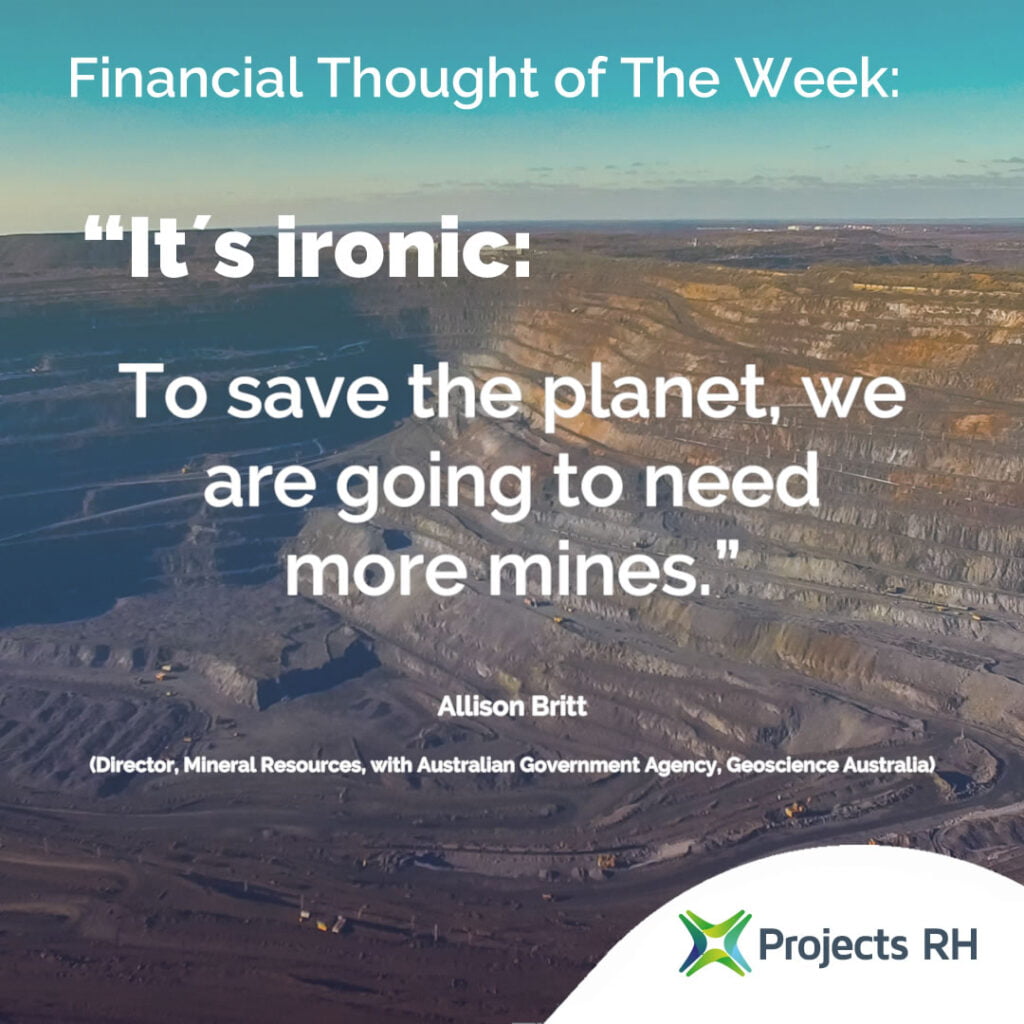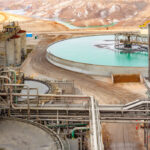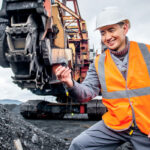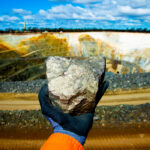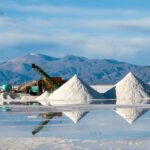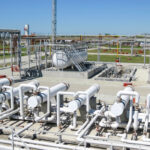“It’s absolutely ironic. But to save the planet, we are going to need more mines.”
Allison Britt
(Director, Mineral Resources, with Australian Government Agency, Geoscience Australia
The great irony
To be politically acceptable the decarbonization of the world needs to maintain the vast majority of people’s living standards. Most people see decarbonization not requiring them to give up their car, travel, built environment or their consumption. For most urban people they need to see change but not for them!
In the coming decades our level of energy consumption is expected to continue to rise along with our standards of living. What we are expecting to see is huge investment in renewable energy, storage and distribution.
Many in the green movement are against mining for a number of reasons, but what is important to understand is that if we are to achieve decarbonization whilst maintaining our existing standard of living, at least in the developed world, we will need to continue to extract the essential minerals which allow us to generate and circulate energy in the form of electricity.
It is somewhat ironic that this mining will require disturbance of the natural environment in order to protect it. It will require energy and miners will be called upon purchase carbon credits or engage in carbon abatement as they collect the essential minerals we need to maintain what we consider to be our standard of living.
Global geopolitical tensions have come under sharp focus due to the events in Eastern Europe and fears of conflict in the South China Sea. Australia’s decision to join the AUSUS strategic partnership only confirms the bipartisan political views held and ensures the need for the country to make a contribution in the area of critical minerals.
Today there are 35 critical minerals which have been identified and have jointly been classified by Australia and the US as critical.
Critical power
Critical minerals are probably best defined as those which we need for making the new necessities of life which evolve around powering everything from mobile phones to satellites to the electric car. Australia is blessed with huge quantities of most of these minerals. No doubt these minerals are available in China and some are found in Canada and North and South America but Australia has them in large deposits and the mining of them will not impact on large communities. But the critical issue is it may impact upon untouched wilderness or agricultural areas.
The West is deeply concerned that the major source of rare earths essential in the making of computer chips is China. As such China has the potential to hold its users to ransom.
Having discovered large amounts of the so-called critical minerals Australia has us already seeing a mining boom, first an exploration and second in the re- opening of mines which failed because of low prices. What these mines are seeing is the willingness of people to write term contracts at attractive prices which facilitate the financing of the reopening of mines.
The challenge lies in the extreme views of some people in what is loosely described as the green movement, which believe we shouldn’t no longer do mining and if we have to, it should be no disturbance to the land other than an underground mine entry and this includes not building tailings dams which can leak into the environment.
Whilst we must learn the lessons of recent history and apply Australia’s considerable expertise in mining, we cannot ignore the fact that Australia is reducing its dependence on the export of fossil fuels and must find alternative sources of income. Second, if we are to live up to our end of decarbonization this does mean we need to have the technology which reduces our CO2 footprint. This technology requires critical minerals in the processing thereof. At this point in time this processing requires that we continue to mine coking coal to enable us to process our normal into steel and make critical minerals into alloys. It is clear that the majority of the world’s population are not wanting to reduce their lifestyle.
What are the critical minerals
The key critical minerals for moving to decarbonization are lithium, cobalt and copper for the building of battery storage and for electric transportation (cars, buses, road trucks, trains etc.). Given our current knowledge hydrogen and its transportable form of ammonia will need these minerals in their production process too. The reality is modern wind turbines can’t be made without rare earths, solar panels need high purity quartz and electric batteries need vanadium, manganese, graphite, cobalt and lithium. With our current level of technology, the transformation process requires abundant amounts of these minerals to facilitate the transformation necessary to deliver the outcome that we have been conditioned we must achieve by 2035 and again by 2050.
The reality is Australia not only has to produce the minerals it needs for itself, but also those needed for the international community. Currently we do not process many of these minerals to the purity needed to make wind turbines, solar panels or batteries. Therefore, our product will go into the international market and there needs to be sufficient so that the product we need can be returned to Australia to facilitate our decarbonization process. Whilst it would be highly desirable from a security and political perspective for these products all to be made in Australia, we know that is unlikely that all the finished products will be made in one country.
Each mine will have its own story
The ABC program Four Corners[1] dedicated its 9th May 2022 piece to the need to dig up parts of Australia to deliver these minerals. In one segment it focused on the need for tungsten and this had seen the reopening of a mine on Kangaroo Island which is part of Tasmania. The community welcomed the reopening of the mine, the creation of jobs and the return of families. They were happy to see the mine coexist with the seafood export industry and the world-renowned cheese and beef industry. But happy locals don’t mean happy people.
What and where are carbon credits?
Carbon credits and carbon offsets become standardized as representing one ton of CO2 equivalent. If produced in fossil fuels have been used instead.
The conflict
Elements within the Australian green movement, led by veteran campaigner Dr. Bob Brown, a former Sen from the State of Tasmania, see this new mining boom as contrary to our environmental interest and challenging the preservation of our natural heritage.
Australia has some of the highest mining and rehabilitation standards in the world, yet the reality is even underground mining does have an impact on the surface. From this the question is do we prefer mining in Australia where it is regulated or in the Pacific and Africa where it is not. It is a question not of money but of strategic minerals and their location.
We should be clear, that mining companies by their nature are not altruistic but they have identified a number of long-term opportunities and there is little doubt we will need these critical minerals over the long-term -and they all are not 100% recyclable.
Australia needs to think if you can have an impact on decarbonization globally in a market where most economies are seeking to increase the amount of energy they consume. CO2 is not an Australian problem but one for all the nations of the world as we share one common environment. The International Energy Agency is seeing an increase in demand over 20 years in some of the battery minerals of 4000%. These are going to need to come from somewhere and it is better that we get them from countries which have higher level environmental practices.
It´s better closer to home
Those countries like Australia will need to engage in mining subject to strong environmental compliance regimes to ensure that the critical minerals produced will see the overall carbon footprint of the world reduce. The time for action is now. We need to do this and ensure that our miners and processes employ best practices. Unfortunately, we cannot simply employ the NIH (not invented here) model as we are part of the global economy and have our own strategic relationships. These countries´ foreign policy will seriously impact their decisions with most countries having their position as a matter of public record.
Those countries blessed with critical minerals need to provide them to the global market and at a commercial price so that necessary changes can be undertaken to decarbonize not just their country but the world.
By Paul Raftery – CEO, Projects RH, based in Sydney
——————————————–
[1] Source: “Digging-in” Four Corners, ABC TV, 9 May 2022. https://www.abc.net.au/4corners/digging-in:-why-powering-a-green-future-means-more/13873540

